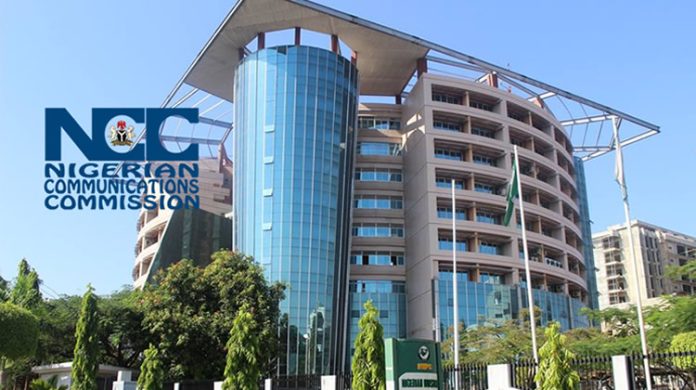The Nigerian Communications Commission (NCC) has solidified its position as a key pillar of growth, innovation, and stability in Nigeria’s telecommunications industry. Through consistent publication of factual reports and detailed statistics, the NCC has fostered trust, enabled informed decision-making, and empowered stakeholders, including Nigerians, investors, and operators. Its role as an exceptional regulator continues to serve as a benchmark for transparency and efficiency, driving the telecom industry to unparalleled heights.
Empowering Nigerians with Accurate and Actionable Data
The NCC has consistently delivered on its mandate to provide Nigerians with critical insights into the telecommunications sector. Through its quarterly and annual reports, the Commission ensures that Nigerians, whether consumers or businesses, are equipped with reliable data to understand the state of the sector.
The most recent NCC reports highlight remarkable statistics, demonstrating the sector’s growth trajectory:
- Active Subscribers: Over 157.6 million active telephony subscriptions reflect the significant connectivity within Nigeria’s population.
- Teledensity: With a teledensity of 72.7%, calculated on a population estimate of 216 million, the sector shows robust penetration across urban and rural areas.
- Internet Penetration: Nigeria has one of the largest internet user bases in Africa, with over 123 million active internet subscriptions, enabling the digital economy to flourish.
These statistics underline the Commission’s commitment to ensuring that the telecoms sector is not only vibrant but also serves as a catalyst for economic and social development.
Securing Consumer Confidence Through Regulatory Excellence
The NCC’s proactive measures to delink unverified SIM cards from the National Identification Number (NIN) database stand as a testament to its commitment to consumer safety and data security. This bold move ensures a secure telecommunications ecosystem, mitigating risks associated with identity fraud, cyber threats, and financial crimes.
By upholding stringent compliance standards, the NCC has bolstered consumer trust, paving the way for broader adoption of telecommunications services and products.
A Magnet for Investment and Economic Growth
Nigeria’s telecommunications market continues to attract significant investment, both locally and internationally, thanks to the NCC’s transparency and investor-friendly policies. The recent market share statistics provide a clear picture of the industry landscape:
- MTN Nigeria: Commands a dominant 51.09% market share with 80.37 million subscribers.
- Airtel Nigeria: Holds 34.61% market share, serving 54.45 million subscribers.
- Globacom: Controls 12.15% market share, catering to 19.11 million subscribers.
- 9mobile: Serves 3.39 million subscribers, representing 2.15% of the market.
This level of market transparency instills confidence in investors, enabling them to make informed decisions while fueling innovation and competition within the sector.
Championing Technological Advancements
The NCC’s regulatory efforts have been instrumental in the rapid adoption of advanced technologies across the telecom landscape:
- 2G, 3G, and 4G Expansion: Nigeria boasts one of the most extensive mobile broadband networks in Africa, catering to diverse consumer needs and supporting the digital economy.
- 5G Rollout: The Commission’s licensing of 5G technology promises to revolutionize connectivity, offering faster speeds, lower latency, and enhanced network reliability.
These advancements position Nigeria as a leader in telecommunications innovation on the continent, attracting global attention and investment.
Supporting the Economy Through Job Creation and SME Growth
The telecommunications sector, driven by the NCC’s visionary leadership, has emerged as a critical contributor to Nigeria’s Gross Domestic Product (GDP). The sector accounted for 15.5% of Nigeria’s GDP in Q2 2024, showcasing its impact on economic growth and job creation.
Small and Medium Enterprises (SMEs), which form the backbone of the Nigerian economy, have particularly benefited from improved telecommunications infrastructure. Enhanced internet penetration and mobile technology have enabled SMEs to scale operations, access new markets, and drive e-commerce adoption.
NCC’s Commitment to Transparency and Accountability
The NCC’s approach to regulation is anchored in transparency and accountability. By regularly publishing comprehensive reports on network performance, subscriber data, and industry trends, the Commission ensures that stakeholders are informed and empowered.
These reports not only provide clarity to Nigerians but also serve as valuable resources for government agencies, research institutions, and international organizations seeking to understand the dynamics of Nigeria’s telecommunications sector.
Lauding NCC’s Role as a Global Standard Regulator
The NCC has earned accolades for its leadership and adherence to global best practices in regulation. Its efforts to:
- Promote competition among operators, ensuring affordable and high-quality services.
- Expand rural connectivity through initiatives like the Universal Service Provision Fund (USPF).
- Facilitate digital inclusion by advocating for broadband penetration targets.
These achievements have positioned the NCC as a model regulator in Africa, fostering a telecom industry that meets the needs of over 200 million Nigerians while setting the stage for sustainable development.
A Bright Future for Nigeria’s Telecom Sector
Looking ahead, the NCC’s strategic focus includes:
- Enhancing broadband penetration to meet the National Broadband Plan 2020-2025 targets.
- Driving 5G deployment to unlock new opportunities in IoT, AI, and smart cities.
- Strengthening cybersecurity frameworks to protect consumers and businesses.
The NCC’s unwavering dedication ensures that Nigeria’s telecom sector will continue to thrive as a key driver of the nation’s economic and technological advancement.
Investors, consumers, and industry players are encouraged to engage with the NCC’s resources and initiatives as Nigeria solidifies its position as a telecommunications powerhouse in Africa.




